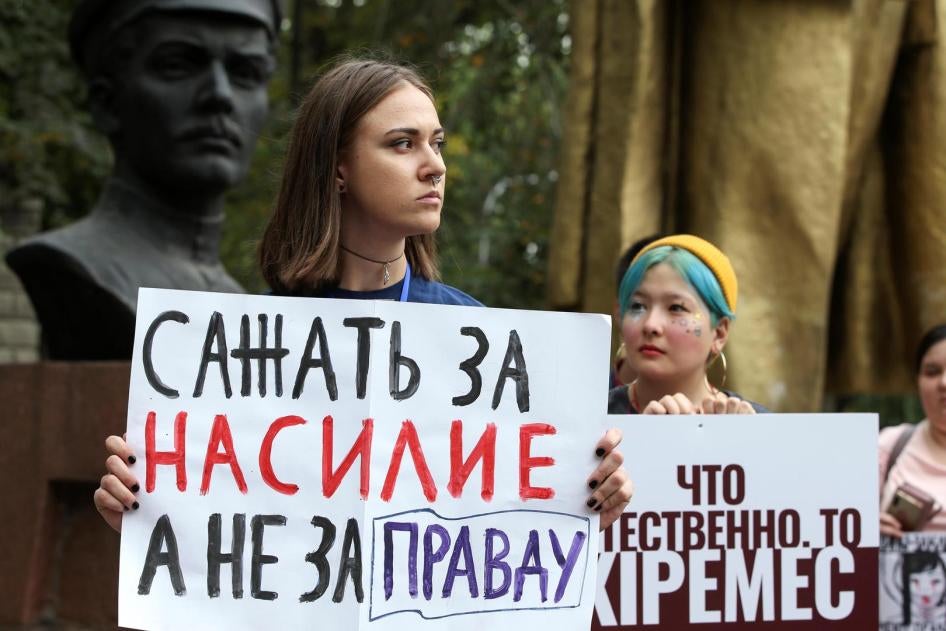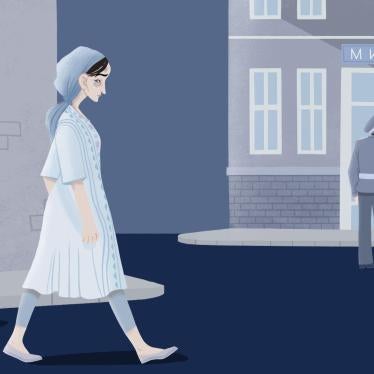What does a woman do if she is being attacked or harassed by strangers outside her home? Her instinct is to seek refuge and protection in her own home, where she feels safe. But what if a woman is being abused by her husband or partner in the home? Unfortunately, in Kazakhstan, domestic violence means that home is not a safe place for many women.
As in previous years, the Kazakhstan government on November 25 launched activities as part of the international 16 Days of Activism against Gender-Based Violence, an annual campaign aimed at “the prevention and elimination of violence against women and girls.”
Representatives of Kazakhstan’s government told us that the goal of the national campaign is to “advocate among the public and to inform citizens about organizations providing assistance to victims of domestic violence.”
These words are hopeful; as was the passage of a law in 2009 to help domestic violence victims. But action to reduce domestic violence and to provide adequate services to survivors is still urgently needed. Domestic violence is persistent in Kazakhstan, seriously undermining the core principle of combating all violence against women. Perilous gaps in legislation, inadequate law enforcement and judicial responses to domestic violence, and the poor quality of services that do exist often leave women with little or no protection.
The women Human Rights Watch interviewed for a report published in October described horrifying personal experiences of abuse by their partners or husbands. One woman told us that in September 2018, when she was six months’ pregnant, her drunk partner pulled her by her hair and dragged her out in the cold to a field, where he beat her for about two hours.
Social stigma, family rejection, economic dependence on abusers, and lack of awareness prevent women from reporting abuse and getting help. A 38-year-old woman whose husband started beating her during their first year of marriage in 2002, said she endured years of abuse and did not report it to police until late 2018 “because of how I was raised, my mentality.” She said she felt that she would be shamed for reporting her husband’s abuse.
The lack of trust in law enforcement and the judiciary, and poor representation of women among relevant authorities creates serious barriers to accessing justice for survivors. A 30-year-old mother of two, said that her husband beat and verbally humiliated her for nine years before she filed for a divorce in March 2019. But she never reported the abuse to the police because she did not have any trust in them: “Why?! They [police] will not do a thing if it’s a family quarrel.”
A woman in her late 30s said that her husband had repeatedly and brutally abused her since 2017, including when she was pregnant. She said that whenever she had gone to the police, she did not feel comfortable detailing the abuse she had suffered because there were “only male police officers”.
Shelters and services for women are a vital component of government's response to domestic abuse. But we found that women do not always feel safe at shelters. Staff at the government -run shelters often do their best to provide support and services, but some shelters have serious security breaches and focus on reconciliation and family preservation, with staff even blaming domestic violence survivors for provoking abusers. They invite abusers to the shelter and encourage women to reconcile with them. One survivor recalled the counselor at the crisis center telling her, “Don’t make your children orphans. Women are themselves at fault.”
President Kassym-Jomart Tokaev in his September address to the nation called on the government to “tighten the penalties for sexual violence…and domestic violence against women.” The Supreme Court and the Interior Ministry of Kazakhstan have reaffirmed this government commitment to Human Rights Watch. We hope Kazakh authorities will act on their words as a first step, as domestic violence should also be a crime under Kazakh law. Women in Kazakhstan need to be able to feel safe in their homes.









